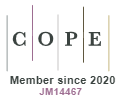Planejamento territorial e Objetivos de Desenvolvimento Sustentável:
implementação de métricas para análise dos planos diretores dos municípios de Rio do Sul, Lontras e Presidente Nereu, Santa Catarina, Brasil
DOI:
https://doi.org/10.5585/2024.21539Palavras-chave:
planejamento territorial, desenvolvimento sustentável, planos diretores municipais, mudanças climáticas, governança ambientalResumo
Objetivo: mensurar a propensão e qualidade dos Planos Diretores Municipais (PDM), de três municípios do Alto Vale do Itajaí (Santa Catarina), referente ao atendimento às expectativas das dimensões da sustentabilidade e dos Objetivos de Desenvolvimento Sustentável (ODS 2015-2030).
Metodologia: procedimento qualitativo, exploratório e documental. Foram selecionados três municípios para análise, considerando as características regionais em termos da quantidade do contingente populacional (pequeno, médio e grande). Assim, foi analisado quanti-qualitativamente a propensão dos PDM quanto ao atendimento às expectativas das dimensões da sustentabilidade e dos ODSs 2015-2030.
Relevância: a metodologia desenvolvida de análise quanti-qualitativa correlacionando PDM e suas propensões no atendimento às dimensões de sustentabilidade e aos ODSs 2015-2030.
Resultados: os três PDM mostraram bons resultados quanto a expectativa para o atendimento das dimensões de sustentabilidade. No entanto, o PDM de Rio do Sul apresentou menor propensão no atendimento dos ODS em comparação aos outros dois municípios analisados.
Contribuições: contribui nas discussões sobre planejamento territorial e desenvolvimento sustentável, bem como, apresenta uma metodologia de análise quanti-qualitativa para PDM.
Conclusão: a análise dos PDMs, frente aos ODS 2015-2030, auxilia no processo de qualificação destes, no que condiz ao desenvolvimento sustentável, assim como, a análise das cinco dimensões de sustentabilidade. É relevante que análises e discussões como esta, ocorram, visando cada vez mais relacionar o desenvolvimento das cidades por meio do planejamento territorial (PDM) e sustentabilidade, em diferentes dimensões.
Downloads
Referências
Alexiadis, S. (2017). Territorial cohesion and prospects for sustainable development: a co-integration analysis. Habitat International, 68(1), 75-83. http://dx.doi.org/10.1016/j.habitatint.2017.03.001.
Allam, Z., & Jones, D. S. (2021). Future (post-COVID) digital, smart and sustainable cities in the wake of 6G: digital twins, immersive realities and new urban economies. Land Use Policy,1(1). https://doi.org/10.1016/j.landusepol.2020.105201
Apollaro, C. & Alvim, A. B. (2017). Estratégias e desafios do planejamento urbano para a adaptação de cidades frente à mudança climática. Revista Meio Ambiente e Sustentabilidade, 13(6), 1-21.
Bai, X. et al., (2018). Six research priorities for cities and climate change. Nature Climate Change, 555, 23-25
Beck, D. & Ferasso, M. (2023). How can Stakeholder Capitalism contribute to achieving the Sustainable Development Goals? A Cross-network Literature Analysis. Ecological Economics, 204(Part A). https://doi.org/10.1016/j.ecolecon.2022.107673
Bento, S. C., Conti, D. de M., Baptista, R. M. & Ghobril, C. N. (2018). As Novas Diretrizes e a Importância do Planejamento Urbano para o Desenvolvimento de Cidades Sustentáveis. Revista de Gestão Ambiental e Sustentabilidade, 7(3), 469-488. http://dx.doi.org/10.5585/geas.v7i3.1342.
Bojarska, J., Złoty, P. & Wolf, W. M. (2021). Life cycle assessment as tool for realization of sustainable development goals - towards sustainable future of the world: mini review. Acta Innovations, 38(1), 49-61. http://dx.doi.org/10.32933/actainnovations.38.5.
Britto, A. L. (2011). Saneamento Ambiental nos Planos Diretores Municipais. In: Santos Junior, O. A. dos; Montandon, D. T. (Org.). Os Planos Diretores municipais pós-Estatuto da Cidade: balanço crítico e perspectivas. Rio de Janeiro: Letra Capital. Cap. 4,127-153.
Carvalho, W. K. M.; Silva, A. O. da; Bon, F. P. & Fernandes, R. A. S. (2020). Mudanças climáticas na metrópole paulista: uma análise de planos diretores e leis urbanísticas. Ambiente Construído, 20(4), 143-156. http://dx.doi.org/10.1590/s1678-86212020000400464.
Constituição (1988). Constituição da República Federativa do Brasil. Brasília, DF: Senado Federal: Centro Gráfico.
Costa, H. S. de M. (2008). Meio Ambiente e Desenvolvimento. Um convite à leitura, In HISA, C. E. V. (Org.) Saberes ambientais, Belo Horizonte: Editora da UFMG.
D’adamo, I., Gastaldi, M., Ioppolo, G. & Morone, P. (2022). An analysis of Sustainable Development Goals in Italian cities: performance measurements and policy implications. Land Use Policy, 120(1), e106278, 2022. http://dx.doi.org/10.1016/j.landusepol.2022.106278.
Dallabrida, V. R. (2015). Governança territorial: do debate teórico à avaliação da sua prática. Análise Social, 1(2), 304-328.
Daly, H. E. (1999). A economia ecológica e o desenvolvimento sustentável. Textos para debate, 34, AS-PTA, Rio de Janeiro.
Espíndola, I. B. & Ribeiro, W. C. (2020). Cities and climate change: challenges to Brazilian municipal master plans [online]. Cadernos Metrópole, 22(48). https://doi.org/10.1590/2236-9996.2020-4802.
Flores, N. V. et al., (2021). Multi-criteria approach for prioritizing and managing public investment in urban spaces. a case study in the triple frontier. Sustainability, 13(6). https:// doi.org/10.3390/su13063345.
Guevara, A. de H., Garostidi, I. Z. & Alegria, R. (2019). Strategic foresight for sustainable development. Revista de Gestão Ambiental e Sustentabilidade, 8(3), 510-524. http://dx.doi.org/10.5585/geas.v8i3.15776.
Hák, T., Janoułková, S. & Moldan, B. (2016). Sustainable Development Goals: a need for relevant indicators. Ecological Indicators, 60(1), 565-573. http://dx.doi.org/10.1016/j.ecolind.2015.08.003.
Heidemann, F. G. (2009). Do sonho do progresso às políticas de desenvolvimento. In. Heidemann, F. G. & Salm, J. F. (org). Políticas Públicas e Desenvolvimento – Bases Epistemológicas e modelos de análise. Brasília: Editora Universidade de Brasília.
Iannillo, A., Fasolino, I. (2021). Land-use mix and urban sustainability: benefits and indicators analysis. Sustainability, 13. https://doi.org/10.3390/ su132313460.
Jenkins, W. (2009). Berkshire encyclopedia of sustainability: The spirit of sustainability (Vol. 1). Berkshire Publishing Group.
Klarin, T. (2018). The Concept of Sustainable Development: from its beginning to the contemporary issues. Zagreb International Review of Economics and Business, 21(1), 67-94. http://dx.doi.org/10.2478/zireb-2018-0005.
Leal Filho, W. et al., (2022). Social values and sustainable development: community experiences. Environmental Sciences Europe, 34(1), 1-13. http://dx.doi.org/10.1186/s12302-022-00641-z.
Lei n. 10.257, de 10 de julho de 2001 (2001). Estatuto da Cidade e Legislação Correlata. 2. ed., atual. Brasília: Senado Federal.
Lei n. 601, de 18 de setembro de 1850 (1850). Lei de Terras. Brasil.
Lo-Iacono-Ferreira, V. G.; Garcia-Bernabeu, A.; Hilario-Caballero, A.; Torregrosa-López, J. (2022). Measuring urban sustainability performance through composite indicators for Spanish cities. Journal Of Cleaner Production, 359(1), 131982. http://dx.doi.org/10.1016/j.jclepro.2022.131982.
Mallick, S. K., Das, P., Maity, B., Rudra, S., Pramanik, M., Pradhan, B., Sahana, M. (2021). Understanding future urban growth, urban resilience and sustainable development of small cities using prediction-adaptation-resilience (PAR) approach. Sustainable Cities and Society, 74(1), 103196 https://doi.org/10.1016/j.scs.2021.103196.
Maricato, E. (2008). Brasil cidades: alternativas para a crise urbana. Petrópolis: Vozes.
Maricato, E., Colosso, P. & Comarú, F. de A. (2018). Um projeto para as cidades brasileiras e o lugar da saúde pública. Saúde em Debate, 42(3), 199-211. http://dx.doi.org/10.1590/0103-11042018s315.
Martine, G. (1993). População, meio ambiente e desenvolvimento: o cenário global e nacional. In. Martine, E. (Org.). População, meio ambiente e desenvolvimento: verdades e contradições. Campinas: Editora da UNICAMP.
Oliveira, A. L. (2020). Desenvolvimento sustentável e os municípios: uma análise sob a perspectiva dos Objetivos do Desenvolvimento Sustentável e da lei nº 13.493/17 (PIV - produto interno verde). Revista de Direito e Sustentabilidade, 6(1), 26-42.
ONU. (1992). Agenda 21. United National Conference on Environmental and Development. Rio de Janeiro.
Opschoor, H. (2011). Local sustainable development and carbon neutrality in cities in developing and emerging countries. International Journal of Sustainable Development & World Ecology, 18(3). https://doi.org/10.1080/13504509.2011.570800
Peres, R. B. & Silva, R. S. da. (2013). Interfaces da gestão ambiental urbana e gestão regional: análise da relação entre planos diretores municipais e planos de bacia hidrográfica. Revista Brasileira de Gestão Urbana, 5(2), 13 – 25. http://dx.doi.org/10.7213/urbe.05.002.se01
Rangel, I. (1981). História da dualidade Brasileira. Revista de Economia, 4(1), São Paulo. 5-34.
Ribeiro, W. C. (2008). Impactos das mudanças climáticas em cidades no Brasil. Parcerias Estratégicas, Brasília-DF, n. 27.
Rodrigues, K. & Rippel, R. (2015). Desenvolvimento Sustentável e Técnicas de Mensuração. Revista de Gestão Ambiental e Sustentabilidade, 4(3), 73-88. http://dx.doi.org/10.5585/geas.v4i3.387.
Rolnik, R. (2001). Estatuto da Cidade - Instrumento para as cidades que sonham crescer com justiça e beleza. In: Saule Júnior, N., Rolnik, R. Estatuto da Cidade: novos horizontes para a reforma urbana. São Paulo, Pólis.
Rolnik, R. (2011). Democracy on the Edge: limits and possibilities in the implementation of an urban reform agenda in Brazil. International Journal of Urban and Regional Research, 35(2). http://dx.doi.org/10.1111/j.1468-2427.2010.01036.x.
Rosenzweig, C. et al. (2015). Climate change and cities: second assessment report of the urban climate change research network (ARC3.2) - summary for city leaders. Cambridge: Cambridge University Press.
Sachs, I. (1993). Estratégias de transição para o século XXI. In. Bursztyn, M. (Org.). Para pensar o desenvolvimento sustentável. São Paulo: Brasiliense.
Sachs, I. (2000). Caminhos para o desenvolvimento sustentável. Rio de Janeiro: Garamond.
Sampford, C. (2002). Environmental governance for biodiversity. Environmental Science & Policy, 5(1), 79–90. https://doi.org/10.1016/S1462-9011(02)00027-8
Santos, M. (1977). Sociedade e espaço: a formação social como teoria e como método. Boletim Paulista de Geografia. n. 54. São Paulo, AGB/FFLCH-USP.
Santos, M. (1978). Por uma geografia nova. São Paulo: Hucitec.
Santos, M. (1994). Técnica, espaço, tempo – globalização e meio técnico-científico informacional. São Paulo: Hucitec.
Satterthwaite, D. (1997). Sustainable Cities or Cities that Contribute to Sustainable Development?. Urban Studies, 34(10), 1667-1691. http://dx.doi.org/10.1080/0042098975394.
Serpa, A. (2008). Cidades e metrópoles: uma perspectiva geográfica para a análise dos “problemas ambientais urbanos”. GEOUSP: Espaço e Tempo, 23(1), 30-43. https://doi.org/10.11606/issn.2179-0892.geousp.2008.74079
Solly, A., Berisha, E., & Cotella, G. (2021). Towards Sustainable Urbanization. Learning from What's Out There. Land, 10(4), 356. https://doi.org/10.3390/land10040356
Staloch, R. (2019). O Potencial do ciberespaço na ampliação da participação social no planejamento territorial municipal. 423 f. Tese (Doutorado). Universidade do Estado de Santa Catarina, Centro de Ciências da Educação, Programa de Pós-graduação em Planejamento Territorial, Florianópolis. Recuperado em 5 de agosto, 2020, de http://sistemabu.udesc.br/pergamumweb/vinculos/000076/00007670.pdf
Thacker, S. et al., (2019). Infrastructure for sustainable development. Nature Sustainability, 2(4), 324-331. http://dx.doi.org/10.1038/s41893-019-0256-8.
Thomas, J. M., & Callan, S. J. (2012). Economia Ambiental: aplicações, políticas e teoria. São Paulo: Cengage Learning.
Undesa – United Nations Department of Economic and Social Affairs/ Population Division (2017). World Population Prospects: The 2017 Revision. Nova York, United Nations. Disponível em: https://esa.un.org/unpd/wpp/Download/Standard/Population/.
Veiga, J. E., & Zatz, L. (2008). Desenvolvimento Sustentável, que bicho é esse? Campina, SP: Autores Associados.
Yang, D. & Yin, C. (2010). Urban sustainability: theoretic framework and conceptual models. Urban Planning, 24(1), 64-70.
Yigitcanlar, T., & Kamruzzaman, M. (2018). Does smart city policy lead to sustainability of cities. Land Use Policy, 73(1), 49–58. https://doi.org/10.1016/j. landusepol.2018.01.034.
Yigitcanlar, T., & Teriman, S. (2014). Rethinking sustainable urban development: towards an integrated planning and development process. International Journal of Environmental Science and Technology, 12(1), 341–352. doi:10.1007/s13762-013-0491-x.
Downloads
Publicado
Como Citar
Edição
Seção
Licença
Copyright (c) 2024 Autores

Este trabalho está licenciado sob uma licença Creative Commons Attribution-NonCommercial-ShareAlike 4.0 International License.
- Resumo 837
- pdf (English) 371
- pdf 460









